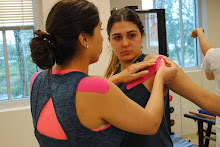Wednesday, June 28, 2006
Sins and Virtues, part one
I just read a column -- I think it was in the Boston Globe -- about Warren Buffet, Bill Gates and the concept of noblesse oblige. This writer suggests that it may be better for humanity, or at least for the pursuit of individual charity, for young people to spend the first part of their careers amassing money. That way, when they get the urge later on to help mankind, they have the resources to really make a difference. After all, a significant minority of the richest people in the world really do use their money to try and help others. The column cited the Rockefellers and their impressive record in the field of education and literacy.
Christians are taught the parable of the "widow's mite." Remember? The rich man comes in with great ostentation and ritual correctness to make sure everyone in the congregation knows how much he gave. Then the poor widow brings in her hard-earned penny. The point is what is in their hearts: The rich man gives what he won't really miss and the poor widow gives her last piece of cash.
It's a good story and a worthwhile lesson, but anyone who has ever celebrated a birthday knows that, to the recipient, it isn't just the thought that counts. I could sell everything I own and donate the proceeds to reduce AIDS in Africa, but it's not going to make a big difference, because I don't own much. That's the point of the column. To put it in religious terms, who else does it benefit if I get into heaven through my selfless acts?
When I first joined the Catholic Church, I took great pride in being able to kneel for long periods of time. I scorned the padded "kneelers" that were at the fronts of the pews and knelt directly on the stone floor. At some point I realized that it was contradictory, maybe even hypocritical, to take such pride in my own gesture of humility. We sometimes forget that pride and envy are listed as sins right up there before avarice, lust and gluttony.
The other two are anger and luxury. More on those two later.
Christians are taught the parable of the "widow's mite." Remember? The rich man comes in with great ostentation and ritual correctness to make sure everyone in the congregation knows how much he gave. Then the poor widow brings in her hard-earned penny. The point is what is in their hearts: The rich man gives what he won't really miss and the poor widow gives her last piece of cash.
It's a good story and a worthwhile lesson, but anyone who has ever celebrated a birthday knows that, to the recipient, it isn't just the thought that counts. I could sell everything I own and donate the proceeds to reduce AIDS in Africa, but it's not going to make a big difference, because I don't own much. That's the point of the column. To put it in religious terms, who else does it benefit if I get into heaven through my selfless acts?
When I first joined the Catholic Church, I took great pride in being able to kneel for long periods of time. I scorned the padded "kneelers" that were at the fronts of the pews and knelt directly on the stone floor. At some point I realized that it was contradictory, maybe even hypocritical, to take such pride in my own gesture of humility. We sometimes forget that pride and envy are listed as sins right up there before avarice, lust and gluttony.
The other two are anger and luxury. More on those two later.
